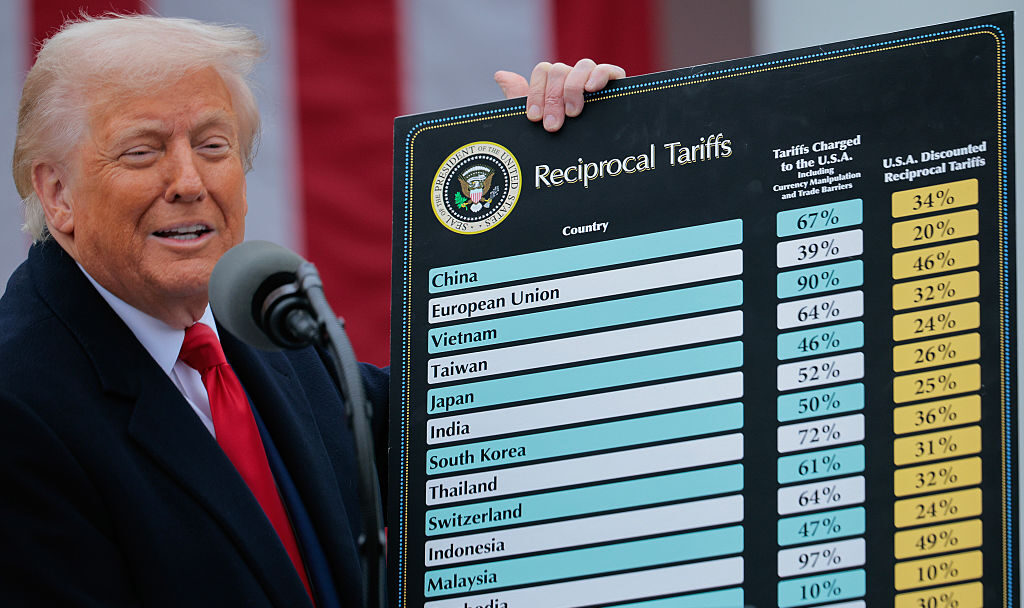Will Trade Policy Be America First’s Iraq War?
There are better and worse ways to do things, and there is no reason to dig in on the worse ways.

There’s a fine line between conviction and partisanship. A helpful rubric is whether you have stopped asking the question, What if we’re wrong?
The Iraq War is an example of choice around The American Conservative’s offices, for good reason. That misadventure’s architects ignored credible criticisms of the project from start to finish, from disqualifying examination of the “intelligence” about Saddam Hussein’s weapons of mass destruction program from the Bureau of Intelligence and Research to the CIA’s opposition to “debaathification” (perhaps the only worthwhile major analysis that organ has produced in its entire history). The results were predictable and have been thoroughly discussed elsewhere, not least in these pages (please subscribe!). Such an error, defended and persisted long past its expiration date, is permanently damaging to an ideological tendency, even discrediting.
Of course, nobody has the market cornered on this kind of thing. The “Liberation Day” tariff package, of which I offered a qualified defense earlier this week, has not been what you’d call a smashing success. Nor is the anomie limited to Trump’s opponents. (Anyway, doctrinaire neoliberals’ carping about tariffs simpliciter is undercut in large part by that crowd’s quietness about Joe Biden’s trade protectionism, which built on measures from the first Trump administration.) Jamie Dimon, the chairman and CEO of JP Morgan Chase and so not exactly a bastion of economic heterodoxy, was broadly supportive of the Trump tariff policy at the beginning of the administration. Lately, however, he has argued that the iteration we got is misguided, and has started to make gloomy noises about the chances of a recession. Of course, a recession may well have been in the offing anyway—it has been a decade, give or take, since there was a natural correction to the economy—but there are more and less politically painful ways to stop the run and slide into second base.
I support tariffs, broadly speaking, as one of the tools in the protectionist policy kit; as noted before, for better or worse, tariffs are currently the least politically constrained tool available. There is a case to be made even for radical changes in tariff policy. Yet statesmanship is the craft in which the ideal meets the real. Sometimes something, even something that should be done, because of quirks of circumstance or execution, doesn’t work very well. Trump has shown a willingness to cut bait when the fish aren’t biting or are threatening to capsize the boat; improvisation is going to be part of any effort to reorient a system as massive as the world economy.
But improvisation is not a good in itself, and the current approach to trade policy seems to threaten to elevate it to the pantheon; it is not encouraging that the final Liberation Day rate card was settled only the night before its announcement, or that Trump’s cabinet seems at odds with itself over what the tariff message actually is. (It is worth emphasizing that the uncertainty per se is in large part what is roiling markets.) The tariffs that arguably made the most sense, on high-technology goods from China, have been given an exemption, albeit a temporary one per a new Sunday missive from the White House. This isn’t inspired pragmatism; this is a disco. Entrenching this approach threatens to become America First’s Iraq War—an avoidable catastrophe that renders permanent political damage to the camp, constricting future bites at the apple of power.
Just because a situation is dire and urgent—as I have argued it is—does not mean that things can’t be done in better or worse ways. The White House has not made its case well to the American people and has done little to mitigate the disruption its policy was bound to cause. Time is short, and some amount of damage may be irrevocable, but there is still some room to maneuver. A clear, unified message about ends and means, probably spearheaded by Treasury Secretary Scott Bessent, who has emerged as the most serious, articulate voice for Trump economic policy; an implementation timetable; abstention from ad-hoc carveouts: These would go a long way. Nor is there any reason to dismiss out of hand the pending trade deal negotiations shaken from the global tree, so long as they do not actually fundamentally undercut the program.
“We’re an empire now, and when we act, we create our own reality. And while you’re studying that reality—judiciously, as you will—we’ll act again, creating other new realities, which you can study too, and that’s how things will sort out. We’re history’s actors … and you, all of you, will be left to just study what we do.” These words, widely attributed to George W. Bush’s advisor Karl Rove, should haunt every policymaker. Hubris does not take a side.
The post Will Trade Policy Be America First’s Iraq War? appeared first on The American Conservative.

